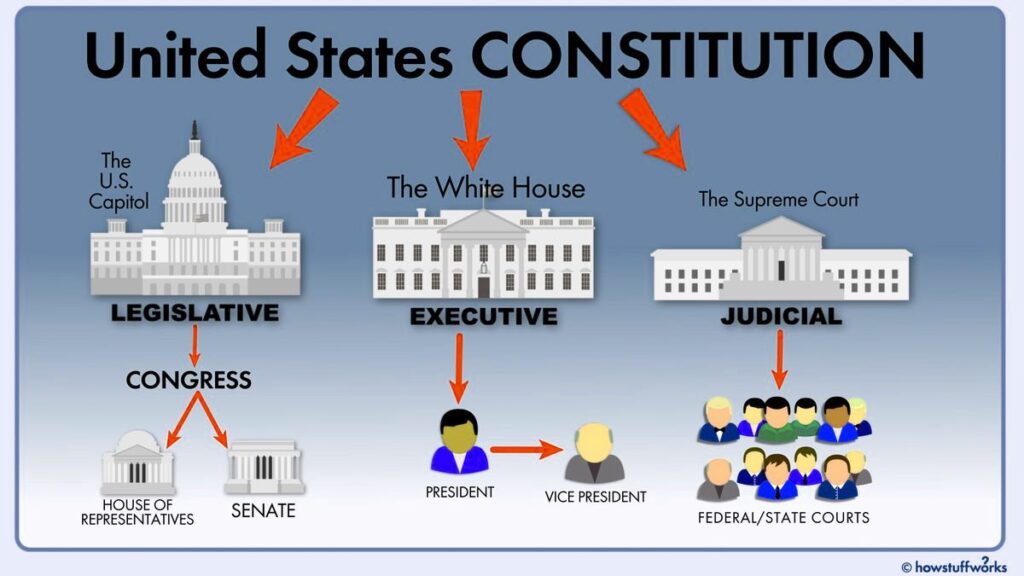TL;DR: Tim Wu on Tech Platforms and Consumer Exploitation
- Tim Wu’s latest book, The Age of Extraction, critiques Big Tech’s monopolistic practices.
- He argues that platforms exploit consumer habits and laziness for profit.
- Wu advocates for aggressive antitrust actions to curb this exploitation.
- Historical precedents inform his views on regulation and consumer rights.
- The future of tech regulation hinges on balancing power and ensuring consumer protection.
Overview of Tim Wu’s The Age of Extraction
Tim Wu’s The Age of Extraction presents a compelling analysis of how major tech platforms have transitioned from being facilitators of growth to entities that extract value from consumers and developers alike. Wu, a prominent legal scholar and former White House advisor, argues that companies like Amazon, Google, and Meta have leveraged their market power to impose higher prices and fees, effectively exploiting consumer behavior and dependency on their services.
In this book, Wu draws parallels between the current era of tech monopolies and the Gilded Age, where unchecked corporate power led to significant societal disparities. He emphasizes that the extraction of value from consumers is not merely an economic issue but a threat to democratic principles and social equity. Wu’s work serves as both a critique and a call to action, urging policymakers to implement robust antitrust measures to restore balance and fairness in the marketplace.
The book is structured around historical examples, illustrating how past regulatory actions against monopolistic giants like AT&T and IBM can inform current strategies against Big Tech. Wu’s insights are timely, especially as the political landscape shifts with the return of a tech-friendly administration, raising concerns about the future of antitrust enforcement.
Critique of Big Tech’s Exploitation of Consumers
In The Age of Extraction, Wu meticulously outlines the mechanisms through which Big Tech exploits consumers. He posits that these platforms have developed a “stickiness” that keeps users engaged, allowing them to extract value through various means, including higher prices, fees, and targeted advertising. This exploitation is rooted in the manipulation of consumer habits and the inherent laziness that comes with reliance on these platforms.
Wu’s critique extends to the broader implications of this exploitation, suggesting that it fosters inequality and resentment among consumers. By prioritizing profit over user welfare, tech giants contribute to a cycle of dependency that undermines consumer autonomy and choice. This dynamic raises critical questions about the ethical responsibilities of these companies and the need for regulatory intervention to protect consumers from predatory practices.
Moreover, Wu highlights the role of behavioral economics in understanding consumer interactions with tech platforms. By leveraging data analytics and algorithms, these companies can predict and influence consumer behavior, further entrenching their market dominance. This exploitation not only affects individual consumers but also stifles competition, as smaller players struggle to survive in an environment dominated by a few powerful entities.
The Need for Aggressive Antitrust Action
Wu argues that aggressive antitrust action is essential to counteract the monopolistic tendencies of Big Tech. He believes that the current regulatory framework is inadequate to address the complexities of the digital economy, where traditional antitrust principles may not fully apply. Instead, Wu advocates for a more nuanced approach that considers the unique characteristics of tech platforms, including their network effects and data-driven business models.
He emphasizes the importance of historical precedents in shaping contemporary antitrust policy. By examining past regulatory successes and failures, Wu provides a roadmap for future actions aimed at dismantling monopolistic structures. He argues that a proactive stance is necessary to prevent the entrenchment of power among a select few companies, which could lead to a future marked by stagnation and inequality.
Wu’s call for aggressive antitrust measures is particularly relevant in light of recent political developments. As the Biden administration’s antitrust momentum faces challenges from a new administration, Wu’s insights serve as a reminder of the ongoing struggle for consumer rights and fair competition in the tech industry.
Historical Context of Regulation in the Tech Industry
The historical context of regulation in the tech industry is crucial to understanding the current landscape of antitrust enforcement. Wu draws on significant historical precedents to illustrate how past regulatory actions have shaped the evolution of market dynamics and consumer protections.
Regulatory Actions Against AT&T and IBM
Wu highlights the regulatory actions taken against AT&T and IBM as pivotal moments in the history of antitrust enforcement. The breakup of AT&T in the 1980s serves as a landmark case that demonstrated the effectiveness of regulatory intervention in dismantling monopolistic structures. Similarly, the scrutiny faced by IBM in the 1970s underscored the need for vigilance against corporate consolidation.
These historical examples provide valuable lessons for contemporary regulators grappling with the complexities of the digital economy. Wu argues that the principles established during these landmark cases should inform current antitrust strategies, emphasizing the need for a proactive approach to prevent the emergence of new monopolies.
Lessons from Historical Precedents
The lessons learned from historical precedents extend beyond mere regulatory actions. Wu emphasizes the importance of understanding the socio-economic implications of monopolistic practices. The historical context reveals that unchecked corporate power can lead to significant societal disparities, undermining democratic values and consumer welfare.
By examining the historical trajectory of regulation in the tech industry, Wu advocates for a comprehensive approach that considers not only economic factors but also the broader societal implications of corporate consolidation. This holistic perspective is essential for developing effective antitrust policies that prioritize consumer rights and promote fair competition.
The Concept of Net Neutrality
Wu is perhaps best known for coining the term “net neutrality,” a principle that advocates for nondiscriminatory access to online platforms. In The Age of Extraction, he revisits this concept, arguing that net neutrality is essential for maintaining a level playing field in the digital economy.
Net neutrality ensures that all internet traffic is treated equally, preventing service providers from prioritizing certain content or applications over others. Wu argues that without this principle, tech platforms could exploit their market power to favor their own services, further entrenching their dominance and stifling competition.
The historical context of net neutrality is also significant. Wu references a 14th-century court case involving a public innkeeper, which established the principle that public accommodations must be accessible to all. This historical precedent underscores the importance of ensuring equitable access to digital platforms, reinforcing Wu’s argument for robust regulatory protections.
The Trilogy of Tim Wu’s Works
Wu’s The Age of Extraction is the third installment in a trilogy that includes The Master Switch and The Attention Merchants. Each of these works explores different facets of the relationship between technology, consumer behavior, and regulatory frameworks.
The Master Switch
In The Master Switch, Wu examines the cyclical nature of information empires, illustrating how open platforms can become closed systems over time. He argues that the internet, like previous communication technologies, is susceptible to consolidation and monopolization. This historical perspective informs his views on the current state of the tech industry and the need for vigilant regulatory oversight.
The Attention Merchants
The Attention Merchants delves into the ways in which tech companies capture and monetize consumer attention. Wu explores the implications of this attention economy, highlighting the ethical concerns surrounding data privacy and consumer exploitation. This work complements the themes presented in The Age of Extraction, reinforcing Wu’s critique of Big Tech’s practices.
Historical Precedents in Wu’s Writing
Wu’s writing is characterized by a deep engagement with historical precedents, which he uses to illuminate contemporary issues in the tech industry. His ability to draw connections between past and present is a hallmark of his scholarship.
14th-Century Court Case on Public Access
One notable example is Wu’s reference to a 14th-century court case involving an innkeeper who was required to provide lodging to all travelers. This case established the principle of public access, which Wu argues is essential for understanding the current debates surrounding net neutrality and platform access rights. By invoking this historical precedent, Wu underscores the importance of equitable access to digital platforms in the face of monopolistic practices.
Implications of Consumer Exploitation
The implications of consumer exploitation in the tech industry are far-reaching, affecting not only individual users but also broader societal structures. Wu argues that the extraction of value from consumers contributes to growing inequality and societal discontent.
As tech platforms continue to dominate the economy, the concentration of power raises concerns about the erosion of democratic values. Wu warns that unchecked corporate power can lead to a future marked by stagnation, resentment, and social unrest. This sobering perspective underscores the urgency of implementing effective regulatory measures to protect consumers and promote fair competition.
Future Directions for Antitrust Policy
Looking ahead, Wu emphasizes the need for a reimagined approach to antitrust policy that addresses the unique challenges posed by the digital economy. He advocates for a proactive stance that prioritizes consumer welfare and promotes competition.
Wu’s insights suggest that future antitrust policies should be informed by historical precedents while also adapting to the rapidly evolving tech landscape. This approach requires a nuanced understanding of the complexities of digital platforms and their impact on consumer behavior.
As the political landscape shifts, Wu’s call for aggressive antitrust action remains relevant. The future of regulation in the tech industry hinges on the ability of policymakers to balance corporate power with consumer rights, ensuring a fair and equitable marketplace for all.
The Future of Regulation in the Age of Extraction
The future of regulation in the age of extraction is fraught with challenges, but Wu’s insights provide a roadmap for navigating this complex landscape. By drawing on historical precedents and advocating for aggressive antitrust measures, Wu highlights the importance of protecting consumers and promoting fair competition.
Understanding the Historical Context of Antitrust
Understanding the historical context of antitrust regulation is essential for developing effective policies that address the unique challenges of the digital economy. Wu’s emphasis on historical precedents serves as a reminder of the lessons learned from past regulatory successes and failures.
The Role of Consumers in Shaping Tech Policy
Consumers play a crucial role in shaping tech policy, and Wu’s work underscores the importance of empowering individuals to advocate for their rights. By fostering a culture of awareness and engagement, consumers can influence the direction of regulatory efforts and hold tech companies accountable for their practices.
In conclusion, Tim Wu’s The Age of Extraction serves as a critical examination of the intersection of technology, consumer exploitation, and regulatory frameworks. His insights offer a compelling case for the need for aggressive antitrust action and a renewed commitment to protecting consumer rights in the face of growing corporate power. As the tech landscape continues to evolve, Wu’s work remains a vital contribution to the ongoing discourse on the future of regulation in the digital age.

